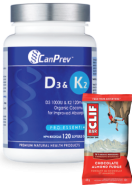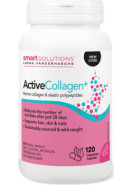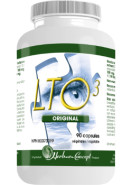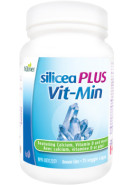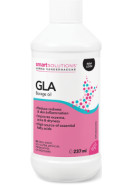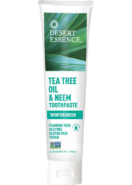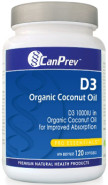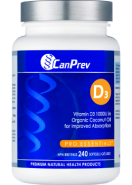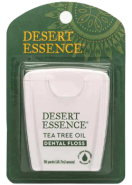Dmae Restorative Cream - 56g - Life Choice
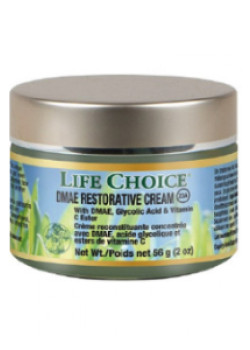
We're sorry, we no longer carry this item.
Check These out
Suggested, Similar, & Related Products:
Or, Shop our Latest Deals:
Shop Now >Format
 Cream
Cream
56g
Dosage
Apply to the entire face and neck, avoiding contact with eyes, a tingling will occur.
Important Information
Discontinue use if rash or other skin irritations occur.
- Softens and eliminates fine lines
- Helps smooth acne and scar tissues
- Gently and effectively improve the appearance of skin tone
- Evens out skin imperfections
- Only natural ingredients used
Related Videos
No Related VideosArticles by a naturopathic doctor.
Life Choice Ltd. is a Canadian Nutraceutical Company, founded in 1986 by Eldon Dahl. Life Choice uses pharmaceutical standards and their precise formulations are designed to be natural alternatives to allopathic medicine. Life Choice brings you award winning products like DMAE Liquid and Gel, DMSO, Kava Kava and Adrenal Gland.
VITAMIN C
Vitamin C is known for its ability to enhance immune function, but its real strength lies in tissue – supporting the growth and repair of tissues all over the body...
The Basics
Vitamin C is a water-soluble vitamin that is not stored within the body. Humans cannot manufacture their own vitamin C, either, meaning it must be taken in through diet and supplementation. Vitamin C is the most widely used supplement. It is recommended that vitamin C be taken in divided doses throughout the day, as excess is lost in urine within a few hours of ingestion. Vitamin C can be found in an abundant number of fruits and vegetables.
Citrus fruits, cantaloupe, berries, mango, papaya, pineapple, leafy greens, broccoli, brussel sprouts, cauliflower, sweet potatoes, red and green peppers, tomato/tomato juice and squash are all rich in vitamin C. Vitamin C is sensitive to heat, so it is recommended to eat these foods raw or only lightly cooked.
WHAT DOES IT DO?
Collagen, Baby!
Vitamin C is essential for the production of a protein called collagen, which in turn plays an integral role in cartilage, tendons, ligaments, blood vessels and skin. As such, vitamin C is necessary for the fast and effective healing of wounds and injuries to these areas, all over the body. It promotes less visible scarring during healing, as the body is only able to form new tissue with the help of vitamin C. Along with calcium, vitamin C also helps to repair and maintain bones and teeth.
Protect your Heart
The role that vitamin C has in heart health can be summed up using one word. Protection. Studies have shown that vitamin C can protect the arteries of the body (remember collagen plays a role here, as well) against damage. Being high in antioxidants, it has been shown to slow the progression of atherosclerosis. Research does not support claims that vitamin C itself can lower cholesterol, but does support findings that suggest it can reduce damage or build up of LDL (bad cholesterol) plaques within the blood vessels. Individuals with low vitamin C levels have an increased risk of stroke, heart attack and peripheral artery disease. Individuals with diets high in antioxidants, such as those high in vitamin C rich foods, are also at a decreased risk of developing high blood pressure.
Immune health
Some practitioners swear by vitamin C for its treatment of cold, flu and other viral infections. The truth is, there is little research to support the use of vitamin C as a CURE for the common cold. That being said, studies do support its ongoing intake as a means to reduce the chance of complications due to cold (pneumonia, bronchitis, etc.), as well as help decrease the severity and duration of cold. Because vitamin C is depleted with stress, there is also evidence to suggest it may be beneficial for the prevention and treatment of stress related immune deficiencies.
The list goes on…
Vitamin C has also been used for the treatment of the following conditions:
- Macular degeneration
- Asthma
- Allergies
- Gingivitis
- Visible signs of Aging
- Preeclampsia
- Inflammation
Deficiency
Severe vitamin C deficiency is rare, but low vitamin C levels are more and more common. Signs and symptoms include poor wound healing, easy bruising, nose bleeds, rough/dry/scaly skin, and dry, splitting hair, gingivitis and decreased immunity. These symptoms can get quite severe, with extreme deficiency known as scurvy. Cigarette smoking can seriously lower vitamin C levels. These individuals must compensate through diet or supplementation. Stress, physical and mental/emotional, can also deplete vitamin C levels, as can some medications, including Non Steroidal Anti Inflammatories (NSAID's).
Types
There are several types of vitamin C. Ascorbic acid is the basic form. To buffer the natural acidity of vitamin C manufacturers bind it to other molecules. Two examples are calcium ascorbate (Ester-C) and ascorbyl palmitate. It also makes vitamin C easier for the body to absorb and decreases the loss of the vitamin through the urine. This increases the cost of the supplement but it is beneficial to those taking high doses of vitamin C, those who cannot tolerate acidic substances, and those with compromised absorption or digestive processes. Vitamin C comes in a variety of dosage forms including conventional capsules, time-released caps/tablets, syrups, powders and chewable tablets. A qualified practitioner can administer it intravenously. Vitamin C is usually derived from corn or dextrose but tapioca-sourced C is also available. Vitamin C is often combined with bioflavonoids, like hesperidin and rutin. These substances work synergistically with Vitamin C. Rose hips are a good substitute for straight vitamin C because they are the richest natural source of vitamin C. Rose hips are also a good source of bioflavonoid.
Important Information
Vitamin C needs are increased if you use oral contraceptives, antidepressants, analgesics, anticoagulants, steroids or alcohol. Cooking, light, oxygen, tobacco smoke and carbon monoxide destroy Vitamin C, impacting internal levels. Vitamin C supplements should be taken away from ginseng. Some diabetic medications and sulfa drugs may be less effective when taken with vitamin C. Individuals with hemochromatosis should not be supplementing with vitamin C. High oral doses, usually over 2000 mg, can cause some abdominal cramping and diarrhea. Speak with your doctor before supplementing with vitamin C if undergoing conventional cancer treatments. Vitamin C can interfere with some blood work, including glucose levels, causing false readings.
VITAMIN C – QUICK FACTS
FOOD SOURCES
· Berries, citrus fruits, green leafy vegetables, tomatoes, cauliflower, potatoes, peppers.
DEFICIENCY SYMPTOMS
· Scurvy – bleeding gums, eczema, poor wound healing, weakness; increased colds and flus, easy bruising.
OPTIMUM DOSAGE
· 500mg - 4g daily. (Clinical doses may be higher as recommended by your practitioner). Take 1000 mg at a time for optimal absorption and effectiveness.
WORKS WELL WITH
· Bioflavinoids, calcium, magnesium, vitamin E, beta-carotene, selenium.
IMPORTANT INFORMATION
· Use Esterified vitamin C (Ester-C or calcium ascorbate) if you have a condition that is sensitive to acidity or if you take aspirin regularly. These forms are also said to be absorbed and utilized better.
· High vitamin C levels can alter laboratory results (ie: sugar levels) and may decrease the effectiveness of cancer treatments.
· Cooking, light, oxygen, tobacco smoke and carbon monoxide destroy Vitamin.
· Excessive intake can result in diarrhea, increased urination and skin rashes.
- Reviews
- POST A NEW REVIEW
















